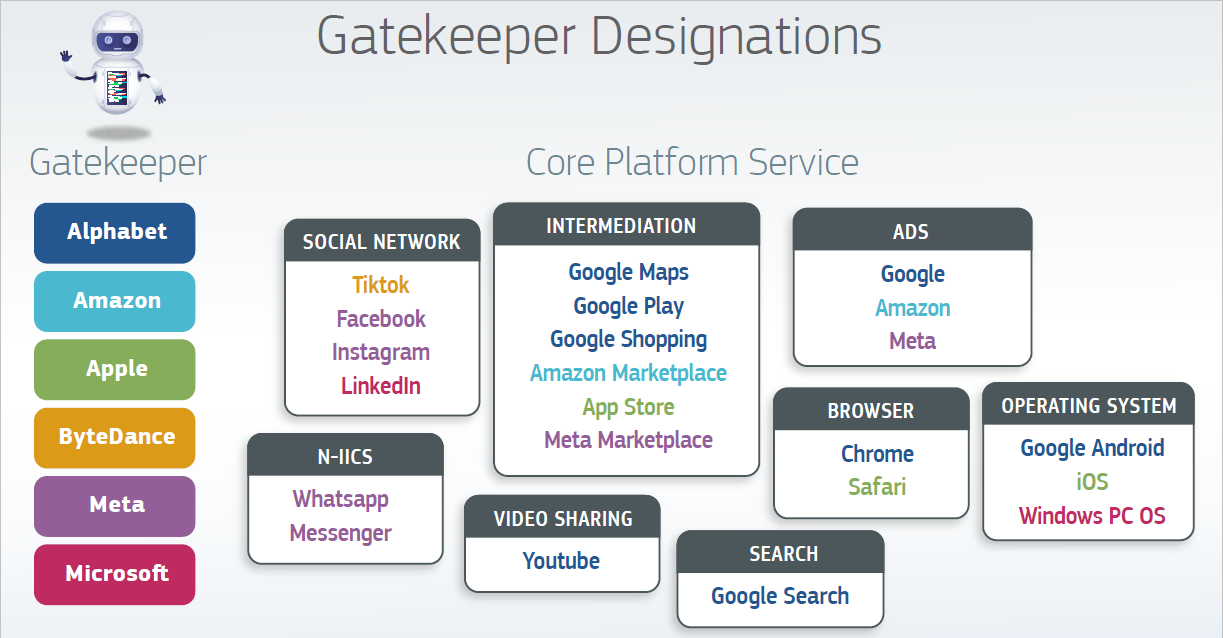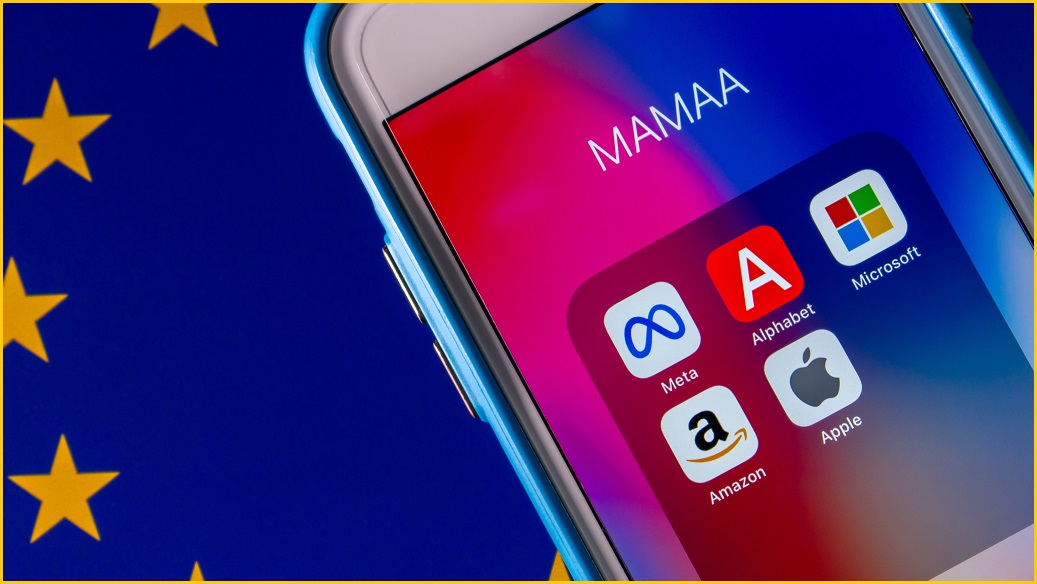The European Commission has designated six big tech firms as ‘gatekeepers’ that must follow a new set of requirements to make the digital world “more open and contestable” or face fines of up to 20 per cent of worldwide turnover.
Alphabet, Amazon, Apple, ByteDance, Meta, and Microsoft have six months to fully comply with the Digital Markets Act which will force different obligations on the companies depending on which service areas they dominate.
“Through effective enforcement, the new rules will bring increased contestability and fairer conditions for consumers and business users, which will allow for more innovation and choice in the market,” said European Commissioner for the Internal Market, Thierry Breton.
“We are serious about this common endeavour: no company in the world can turn a blind eye to the prospect of a fine of up to 20 per cent of their global turnover if they repeatedly break the rules.”
The regulation covers 10 core areas, though the European Commission only selected eight platform services for its initial gatekeeper designation: social networks, intermediation, messaging apps, advertising, browsers, search engines, video sharing, and operating systems.
Virtual assistants and cloud computing services were left off the initial gatekeeper list.
Each type of digital service comes with its own set of obligations the named companies must meet by March 2024.
The obligations are expected to have radical implications for the digital world and are designed to increase competition or erode monopolies.
Operating system gatekeepers – Google Android, Apple iOS, and Microsoft Windows – will need to allow users “to install third party apps or app stores that use or interoperate with the operating system”, a requirement that will affect Apple’s ability to lock users into its mobile app ecosystem.
Advertising gatekeepers – Google, Amazon, and Meta – will need to provide tools that let businesses independently verify the performance of their ads.
There are also obligations around data control, especially for businesses, along with a need for companies to let people unsubscribe from services “as easily as they subscribe to them” – hopefully putting an end to the ‘dark patterns’ that trap customers in unwanted subscriptions.

The European Commission has designated companies as gatekeepers. Image: supplied
Interoperability is an important feature of the Digital Markets act that will force messaging apps (WhatsApp, Facebook Messenger) to allow cross-communication with apps from other providers.
Basic messaging between individuals on different platforms must be implemented within the first six months. More complex functionality like group messages must be built after two years, and interoperable video and voice chat four years after the original designation.
Only the designated messaging services will need to allow interoperability although the EU has told Apple that it has also started investigating iMessage.
WhatsApp has already begun preparing for interoperability as seen in a new beta update first reported on by WABetaInfo.
Though still in development and not yet functional, the latest Android beta version of WhatsApp has a dedicated section for third-party chats that shows Meta’s intention to comply with the EU regulation by letting people use other apps – such as Telegram and Signal – to talk with WhatsApp users.










